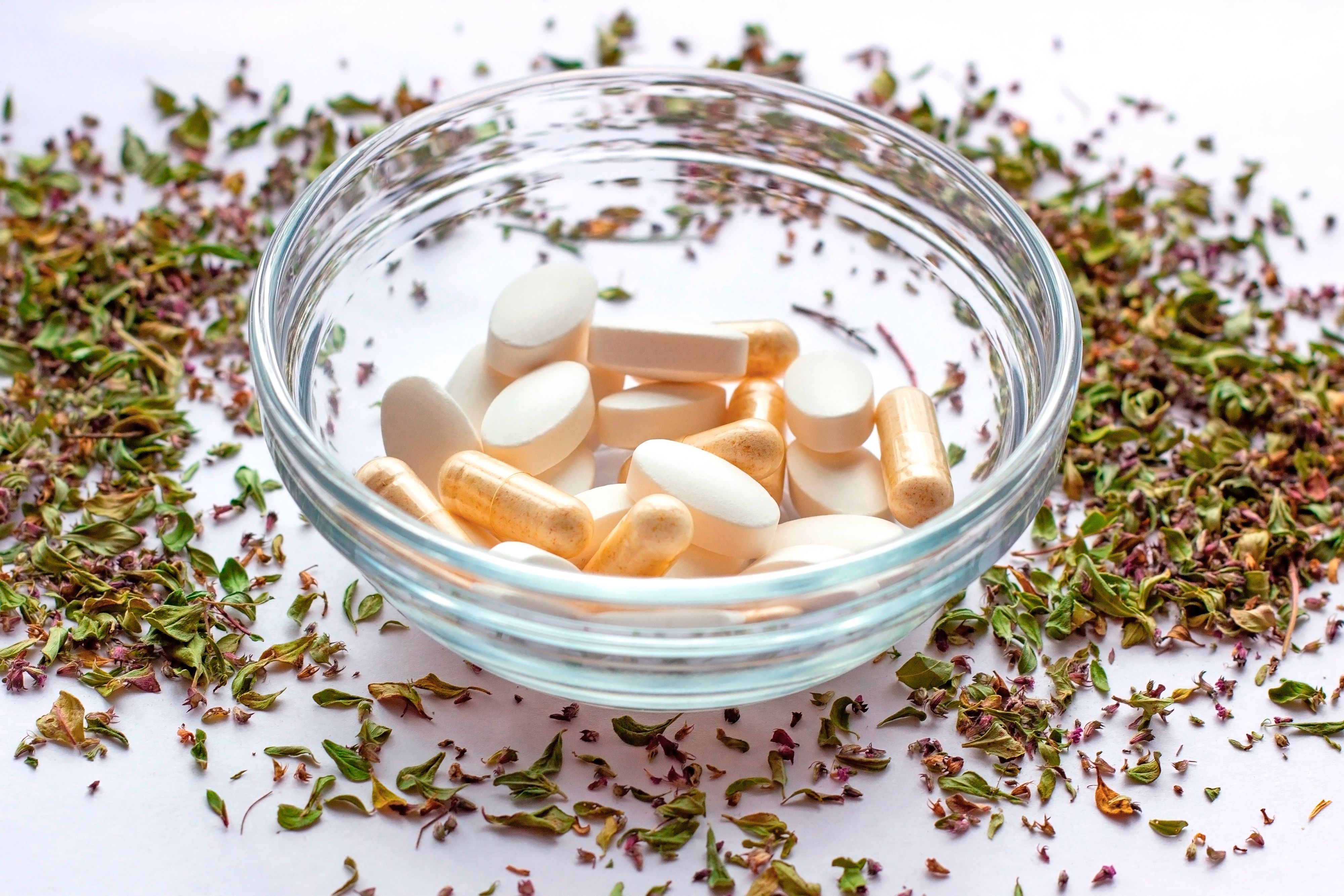Article
Nearly 90 Percent of PsA Patients Who Use Complementary Medicines Report Benefits
ACR Annual Meeting: More than half of survey psoriatic arthritis patients say they have adopted complementary or alternative medicine strategies and most say they've experienced some benefit, researchers reported November 12 at the annual meeting of the American College of Rheumatology in Atlanta.
(©Katsiaryna,AdobeStock_266394007)

More than half of surveyed psoriatic arthritis patients reported using some form of complementary or alternative medicines over a 12-month period, researchers reported November 12 at the annual meeting of the American College of Rheumatology in Atlanta.
“The use of complementary or alternative medicines is common in the general population but has never been completely evaluated in a cohort of patients with validated CASPAR criteria,” reported Sergio Schwartzman, M.D, of New York-Presbyterian Hospital and the Hospital for Special Surgery, New York.
They survey included 129 patients who were asekd about 14 specific treatments, the reasons for use, and how they were helpful. 53% said they had used complementary or alternative medicines in the last year. About a quarter (25.6%) used complementary or alternative medicines for other musculoskeletal problems and 6% used it for other reasons.
Massage was the most-used complementary or alternative medicines modality, followed by meditation, herbs, and “other,” a category reported by 26.5% of patients that included cannabis therapies, vitamins or supplements, and yoga.
After comparing medication use among those who used complementary or alternative medicines and those who didn’t, the researchers found that users were less likely to use biologics and targeted synthetics than non-complementary or alternative medicines users, though this finding was not statistically significant.
“This speaks to the question about complementary or alternative medicines that plagues rheumatologists-whether patients are using these modalities instead of traditional therapies,” said Dr. Schwartzman, who emphasized that these findings don’t provide a clear answer to that question.
“We didn’t look critically at DMARD use, so we can’t categorically say that these patients were not using traditional therapies, just that they are not using biologic and targeted synthetic medications to the degree that non-treatment users are,” he said.
Overall, 87.9% of patients using these modalities reported complementary or alternative medicines were at least somewhat helpful and only 1.7% rated complementary or alternative medicines as not at all helpful.
“I wouldn’t support complementary or alternative medicines to the exclusion of traditional therapies; however, while they for the most part have not been studied prospectively in research clinical trials, that doesn’t necessarily mean that these modalities are not effective,” Schwartzman said.
REFERENCE“2462 - Use of Complementary and Alternative Medicine (CAM) in a Psoriatic Arthritis Cohort,” Sergio Schwartzman, MD, 9 a.m., Tuesday, Nov 12. American College of Rheumatology 2019 annual meeting, Atlanta.
DISCLOSURES
Dr. Schwartzman reported disclosures related to AbbVie, Genentech, Janssen, Lilly, Novartis, Pfizer, Regeneron, Sanofi, UCB, Gilead, Medtronic, Crescendo, Dermtech, Myriad, Samsung, National Psoriasis Foundation, Amgen, Boston Scientific.




